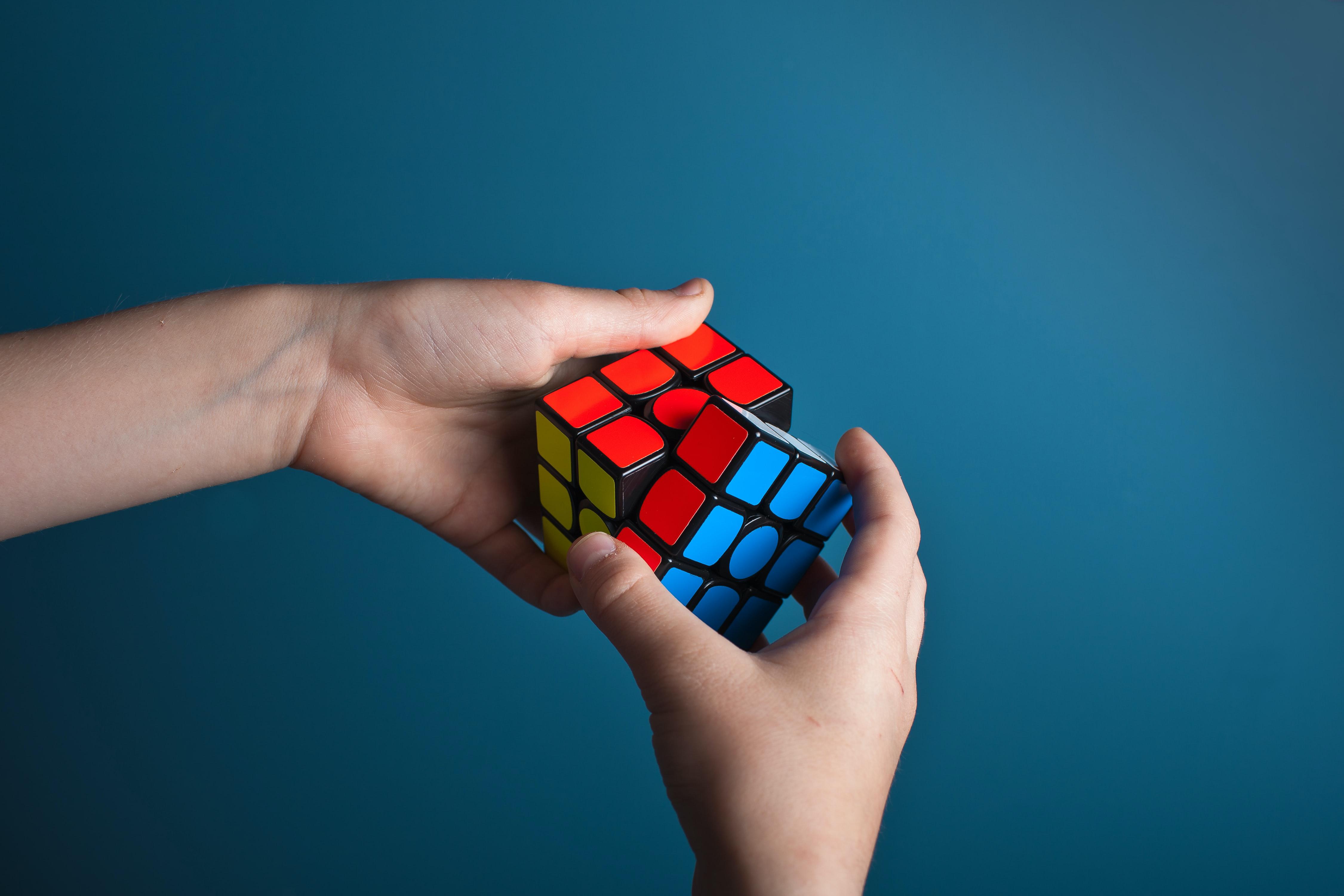The Neuroscience of Success
Neuroscience and psychology have identified willpower as essential to success in school and beyond. Like a muscle, it can be developed through exercise, and exhausted through overwork.

Sign up for the Smarter Faster newsletter
A weekly newsletter featuring the biggest ideas from the smartest people
“Our bodies are our gardens, to the which our wills are gardeners.”
–Shakespeare’s Othello, I.iii
Admittedly, the messenger quoted above is Shakespeare’s arch-villain Iago. But when the message is right, it’s right. Neuroscience and psychology have identified willpower, largely a co-production of genetics and early childhood training, as essential to success in school and beyond. And while overall levels of willpower vary from person to person, there’s only so much of it any of us can expend over a given time period; like a battery, willpower gets depleted, and needs time to recharge.
We tend to think of willpower as the drive to achieve. The more of it you have, the more productive you can be. That’s accurate, says Princeton neuroscientist Sam Wang, co-author of Welcome to Your Brain, but it’s a little more complicated than that. Willpower, as neuroscience understands it, is mainly a matter of self-restraint,or effortful self-control.At the most basic level, it’s the ability to resist a slice of quadruple chocolate mousse cake with buttercream frosting, or to avoid quitting in the middle of a tiring workout. The better able you are to resist your own natural impulses, the more effectively you can focus your mental energy on the task at hand, however pleasant or irritating it may be. The net result: getting more things done, and doing each thing better. Because no matter how cool your job is, no matter how much fun your friends are, no matter how cushy your financial reserves, life demands discipline.
Willpower is Like a Muscle . . . it can be developed through exercise, and exhausted through overwork. The preschool years, up to about age 6, are a crucial period for developing willpower. While Tiger Motheringmay actually cause counterproductive stress in developing brains, structured play, second language learning, and music lessons have all been shown to help children build this essential habit of mind.
So what if you’re an adult whose parents allowed you to run amok, feasting on ice cream sundaes at will?
The good news, says Dr. Wang, is that “brains do well what they do often.” And practicing self-control can increase overall willpower throughout adulthood. In one experiment, scientists discovered that brushing your teeth with the wrong hand for two weeks leads to increased stick-to-it-iveness* in other areas. Likewise goal-setting at work, or following a regular exercise routine.
The Radish Experiment: Dr. Wang quotes a classic study in which a group of college students were given an impossible puzzle to solve. Some of the students were given radishes in advance (on average, college students dislike radishes. Who knew?). Some students were given nothing to eat. Others were given freshly baked chocolate chip cookies. The rule was that you had to eat the food before attempting the puzzle. The students who ate the radishes gave up on the puzzle after an average of eight minutes. The no-food group and the cookie group persisted about twice as long. Conclusion: The radish-eaters exercised effortful self-control in eating something unpleasant, thereby depleting their willpower reserves.
Work-Rest Balance: The neuroscience of vacationing, or even of a drink with colleagues after work, is not well understood. Willpower depletion over the course of a day, weeks, or months – though plenty of anecdotal evidence suggests that it happens – has yet to be studied in depth. What is well understood is that marching through effortful tasks one after another, for hours at a time, is a bad idea. To conserve your willpower and maximize your productivity, you might:
–Shakespeare’s Othello, I.iii
Admittedly, the messenger quoted above is Shakespeare’s arch-villain Iago. But when the message is right, it’s right. Neuroscience and psychology have identified willpower, largely a co-production of genetics and early childhood training, as essential to success in school and beyond. And while overall levels of willpower vary from person to person, there’s only so much of it any of us can expend over a given time period; like a battery, willpower gets depleted, and needs time to recharge.
We tend to think of willpower as the drive to achieve. The more of it you have, the more productive you can be. That’s accurate, says Princeton neuroscientist Sam Wang, co-author of Welcome to Your Brain, but it’s a little more complicated than that. Willpower, as neuroscience understands it, is mainly a matter of self-restraint,or effortful self-control.At the most basic level, it’s the ability to resist a slice of quadruple chocolate mousse cake with buttercream frosting, or to avoid quitting in the middle of a tiring workout. The better able you are to resist your own natural impulses, the more effectively you can focus your mental energy on the task at hand, however pleasant or irritating it may be. The net result: getting more things done, and doing each thing better. Because no matter how cool your job is, no matter how much fun your friends are, no matter how cushy your financial reserves, life demands discipline.
Willpower is Like a Muscle . . . it can be developed through exercise, and exhausted through overwork. The preschool years, up to about age 6, are a crucial period for developing willpower. While Tiger Motheringmay actually cause counterproductive stress in developing brains, structured play, second language learning, and music lessons have all been shown to help children build this essential habit of mind.
So what if you’re an adult whose parents allowed you to run amok, feasting on ice cream sundaes at will?
The good news, says Dr. Wang, is that “brains do well what they do often.” And practicing self-control can increase overall willpower throughout adulthood. In one experiment, scientists discovered that brushing your teeth with the wrong hand for two weeks leads to increased stick-to-it-iveness* in other areas. Likewise goal-setting at work, or following a regular exercise routine.
The Radish Experiment: Dr. Wang quotes a classic study in which a group of college students were given an impossible puzzle to solve. Some of the students were given radishes in advance (on average, college students dislike radishes. Who knew?). Some students were given nothing to eat. Others were given freshly baked chocolate chip cookies. The rule was that you had to eat the food before attempting the puzzle. The students who ate the radishes gave up on the puzzle after an average of eight minutes. The no-food group and the cookie group persisted about twice as long. Conclusion: The radish-eaters exercised effortful self-control in eating something unpleasant, thereby depleting their willpower reserves.
Work-Rest Balance: The neuroscience of vacationing, or even of a drink with colleagues after work, is not well understood. Willpower depletion over the course of a day, weeks, or months – though plenty of anecdotal evidence suggests that it happens – has yet to be studied in depth. What is well understood is that marching through effortful tasks one after another, for hours at a time, is a bad idea. To conserve your willpower and maximize your productivity, you might:
What’s the Significance?
U.S. popular culture tends to celebrate the myth of talent – of the inborn, unimprovable specialness of the individual. Our advertising, movies, and television are awash in stories of misunderstood geniuses, suddenly, belatedly catapulted into the spotlight where they will remain, happily ever after. Taken as a whole, these inspiring tales suggest that all we need to do is sit tight and Be Ourselves, and we will eventually be discovered.
Without refuting anyone’s innate beauty, the neuroscientific findings of Dr. Wang and his colleagues suggest that success in any endeavor depends at least as much on our ability to restrain ourselves as to express ourselves. A close look at the biography of any given genius usually reveals a hard core of self-discipline: hours of practice, reams of paper crumpled and thrown across the room in disgust, and also sublime moments of discovery. Never mind genius: for much of the planet, even daily survival demands extreme self-control.
U.S. popular culture tends to celebrate the myth of talent – of the inborn, unimprovable specialness of the individual. Our advertising, movies, and television are awash in stories of misunderstood geniuses, suddenly, belatedly catapulted into the spotlight where they will remain, happily ever after. Taken as a whole, these inspiring tales suggest that all we need to do is sit tight and Be Ourselves, and we will eventually be discovered.
Without refuting anyone’s innate beauty, the neuroscientific findings of Dr. Wang and his colleagues suggest that success in any endeavor depends at least as much on our ability to restrain ourselves as to express ourselves. A close look at the biography of any given genius usually reveals a hard core of self-discipline: hours of practice, reams of paper crumpled and thrown across the room in disgust, and also sublime moments of discovery. Never mind genius: for much of the planet, even daily survival demands extreme self-control.
Weigh In! Is your work life well-balanced?
––––––––––––––––––––––––––––––––––––––––––––––––––––––––––––––––––––
*Not a scientific term.
––––––––––––––––––––––––––––––––––––––––––––––––––––––––––––––––––––
*Not a scientific term.
Sign up for the Smarter Faster newsletter
A weekly newsletter featuring the biggest ideas from the smartest people





